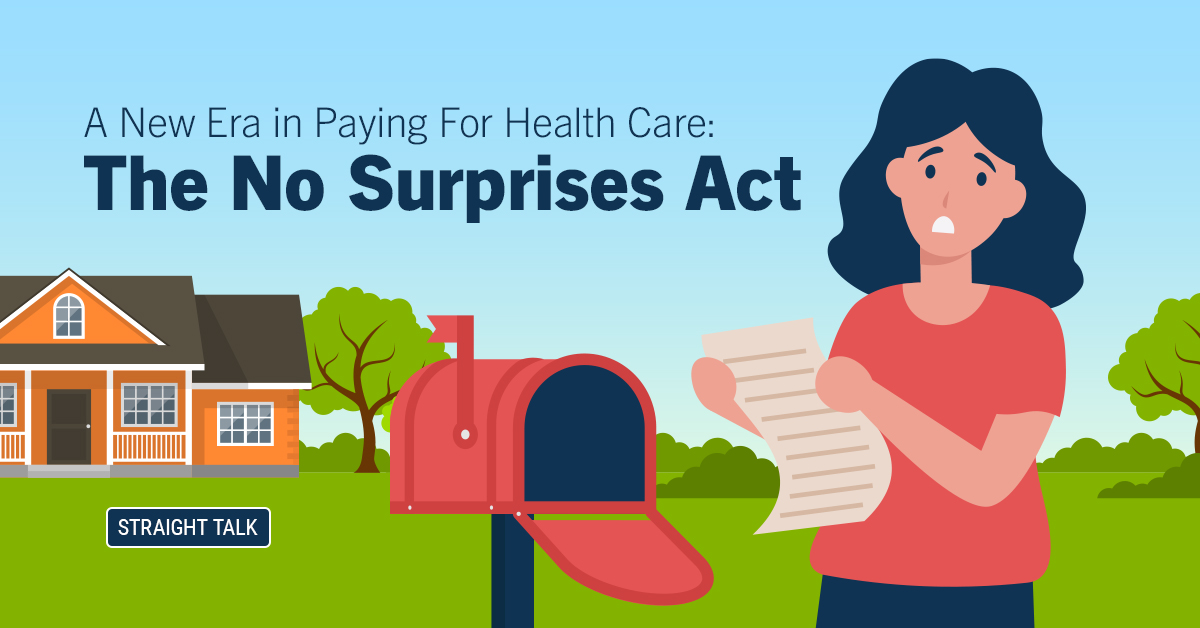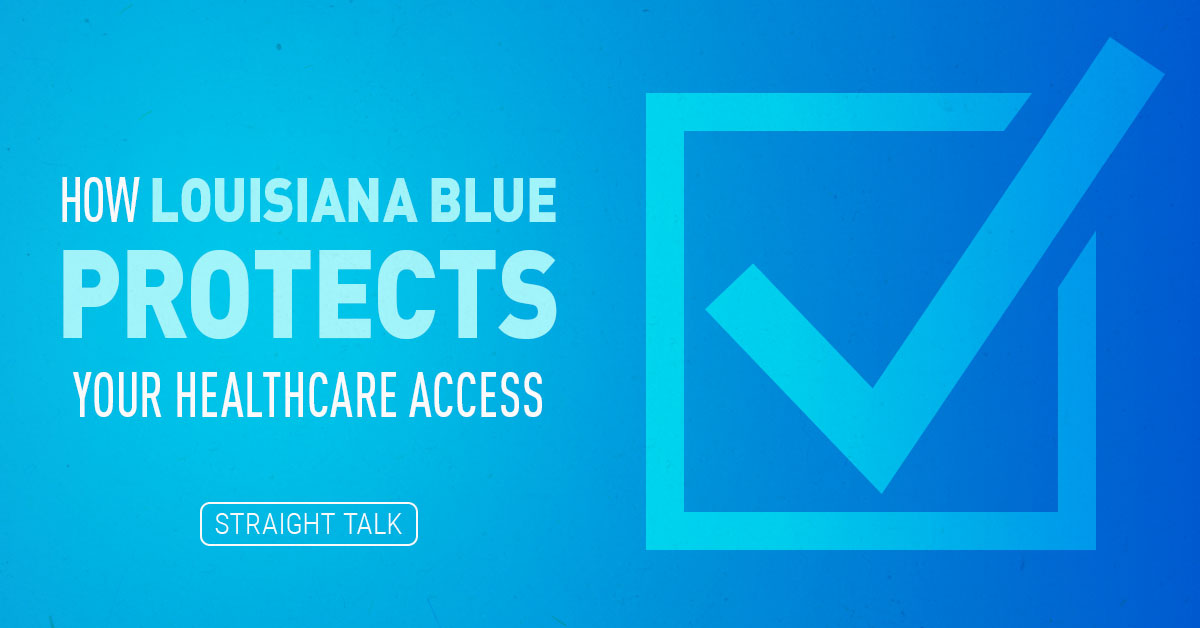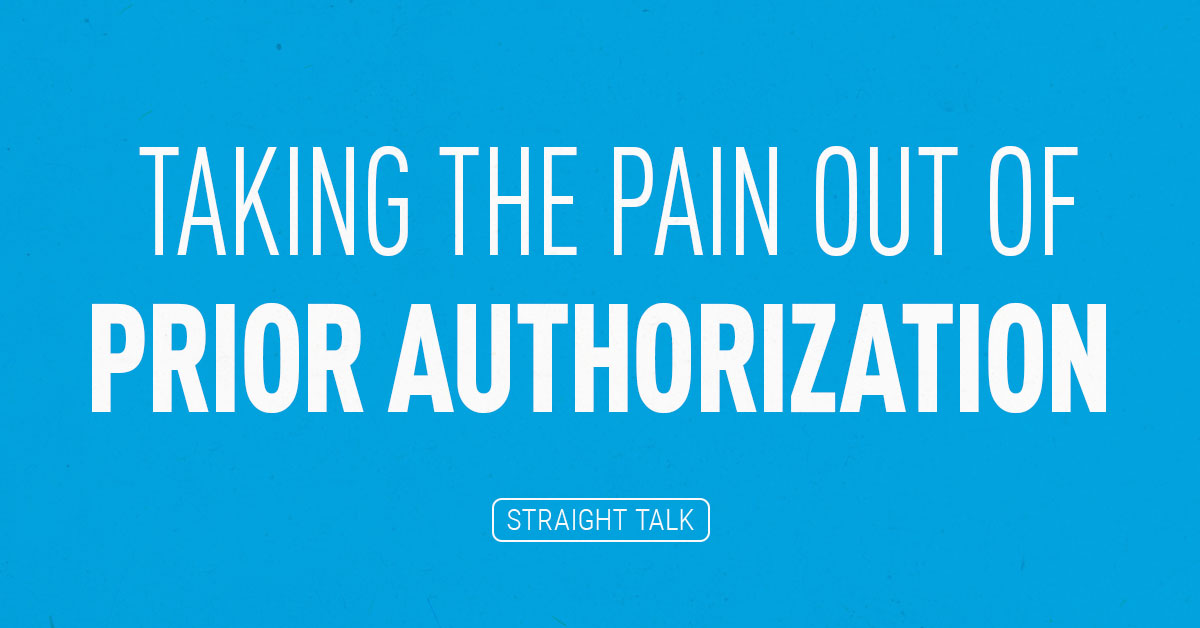I’ve talked with you before about the bad news that’s surprise billing (also called balance billing) here, here and here, and made a video about it here. Today, I’m going to explain how a new law is going to help alleviate the problem.
About a year ago, Congress passed a huge spending package (The Consolidated Appropriations Act of 2021, or CAA) designed to keep the federal government running for a while. The CAA included all kinds of extensions in it for lots of programs. Literally trillions of dollars in spending, all signed into law right after Christmas 2020.
Among a ton of other health care changes buried in the CAA was something designed to protect health care consumers from getting unexpected medical bills.
Where Do Surprise Bills Come From?
The “No Surprises Act” (one part of the CAA) will take effect for health plans as they renew in 2022. It’s important that we, as health care consumers, understand our new rights under the law.
This act did two major things:
- It pointed out clearly the types of “emergency” and “non-emergency” situations and services when medical providers who are not in your health plan’s network cannot bill you extra for treating you. Typically, situations where you end up being treated by an “out-of-network” doc when you’re in an “in-network” hospital or emergency room are off-limits for balance, or surprise, billing; and
- It redefined the terms “emergency medical condition” and “emergency medical service” under federal law to make many, many more medical situations fit the definition. This has the effect, of course, of making sure you’re protected from surprise bills much more often.
So, Mike, what’s that look like in real life?
Well, let’s imagine you wake up in the middle of the night and you are feeling really, really poorly. In fact, your symptoms are scaring your spouse, so she takes you to an emergency room.
So, you end up in the emergency room at a hospital you KNOW is in your health plan’s network. But the hospital is having staffing problems, so they have outsourced their emergency department to doctors who DON’T participate in your network (this happens all the time; roughly half of the ER docs in Louisiana don’t work for the hospital where they treat you). This out-of-network doctor treats you and gets you well.
Now, you’re going to get a bill for your hospitalization…
You’re going to get a bill from the hospital for “hospital and facility charges.” This includes sort of rental time on the room you were in, supplies and materials used to treat you, charges for any imaging or other tests, and paying your nurses and aides. Since the hospital is “in-network,” this bill should line up with what your insurance company will pay and authorize, and you are only responsible for any copay, deductible or coinsurance you know you have with your plan. You have in-network protection on your hospital charges.
But that out-of-network ER doc is another story. Because he does not participate in your network, he does not have to take what your plan pays for your care. He is not limited by the protection of your insurance company’s negotiated rates in what he can charge you. In fact, he can literally charge you any price he wants for his services. Any number. We often see these types of charges at 4x, 5x, even 6x as much as Medicare would pay for the same services on behalf of their members.
Congratulations, YOU are about to be “balance billed” or “surprise billed” – just because this in-network hospital allowed an out- of-network doc to treat you. YOU are about to get one big, giant bill that your insurance company is only going to pay a small fraction of, leaving you on the hook for potentially thousands or hundreds of thousands of dollars.
At least, that’s how it was before the No Surprises Act.
Surprise! No more unexpected bills
As of when your health plan renews in 2022, that out-of-network doctor, operating in an emergency situation, CANNOT charge you, the patient, any more than the in-network rate. And, he has to accept the in-network rate from your health plan as payment in full or negotiate for more. IF he wants to get paid more, he has to negotiate with your insurance company and sometimes a third party to decide the correct payment based on your health plan and laws that apply. The GREAT news is, even if the doc does want to get paid more and goes through this process, YOU, the patient, are out of it. These things will happen behind the scenes.
And to make sure the No Surprises Act applies to even more situations, Congress redefined “emergency services” to now last until the treatment ends, not just when the patient becomes stable like it was defined in the old days.
And did I mention that almost ALL air ambulance rides will be covered as in-network under the No Surprises Act? Talk about a load off your mind!
But there is a caveat
If you give written consent and give up your No Surprises Act protections, those out-of-network providers CAN send you that bill for all of those costs they’re trying to get you to pay above what your health plan will pay.
This written permission may come as a form in the piles of paperwork the hospital has you sign before treatment, usually for a planned procedure like a surgery. So read your paperwork carefully. You are fully within your rights NOT to sign consent to balance bill you.
I’ve put together this handy guideline:
When out-of-network providers CANNOT bill a member:
- Out-of-network providers cannot send you an unexpected bill when you cannot choose who treats you.
- Out-of-network providers who see you in a true health emergency cannot send you a bill for more than what your health plan pays.
- In most cases, out-of-network providers who see you in a network hospital cannot send you a bill for more than what your health plan pays without your consent.
When out-of-network providers CAN bill a member:
An out-of-network provider may bill you for more than what your health plan pays a network provider for the same kind of care when:
- You choose an out-of-network provider when network providers are available, or
- When you give an out-of-network provider consent before you get care for non-emergency care or care not covered by your health plan.
You can learn more about the No Surprises Act and your consumer rights here.
But the Straight Talk is, your new protections are already in effect
If you must get care in a true emergency from an out-of-network provider, the most the provider may bill you is your health plan’s defined copayment, coinsurance or deductible for in-network care. You won’t get a surprise bill for emergency medical services. This includes care you may get after you’re in stable condition, as long as you don’t sign away your right to not be balance billed.





This just has to do with language – the OON provider cannot bill you for more than your health plan “allows” – not “pays”. You still owe your deductible, coinsurance, copays per the “allowable” which is the re-calculated service charge.
Michelle,
Under current rules, an out of network provider can bill a patient as much as they want, no limits, no rationale required.
This is the first nation-wide attempt to hold the patient harmless in that transaction, during an federally-defined emergency. It’s a really big deal.
And the patient will only pay their IN-NETWORK deductible, copays and coinsurance. Much better deal for the patient all around.
Cheers!….mrb
Mike, my question is this. Since the providers must bill as if they are in network, will the insurance company also treat the bill as an in network charge? As you know, the deductible and out of pocket on most plans out of network cost are double the in network cost. So, are the protections for the patient here as well?
Thank you for all you do! Hope you have a wonderful year.
Dave V.
Yes, the NSA requires the carrier, when a patient is in an emergency situation at an in-network facility, to treat all charges as “in-network” even if rendered by an out of network doc or technician, including copays, coinsurance, and deductible required.
That out of network doc/technician will then be paid at a rate determined by Fed officials called the “Qualified Payment Amount” which is supposed to be an in-network average payment amount in the geographic area where the services were rendered. As you’ll note above, the definition of “emergency” has also been greatly expanded, effectively applying the NSA to many more patients.
If the provider/tech is unhappy with his qualified payment amount, he can negotiate with the carrier for 30 days, if still unhappy he can take his claims to a single-bid arbitration process where the loser pays the admin fee for the arbitration ($400-$1,000 per claim). Once a decision is rendered, that type of claim cannot be re-submitted to arbitration for at least 90 days by the provider/tech.
In the arbitrator’s world, neither Billed Charges, nor public payment amounts (Medicaid/Medicare) may be considered during the negotiations. Only regional averages of in-network payments. So far, that is.
Hope that helps!
Cheers!…mrb